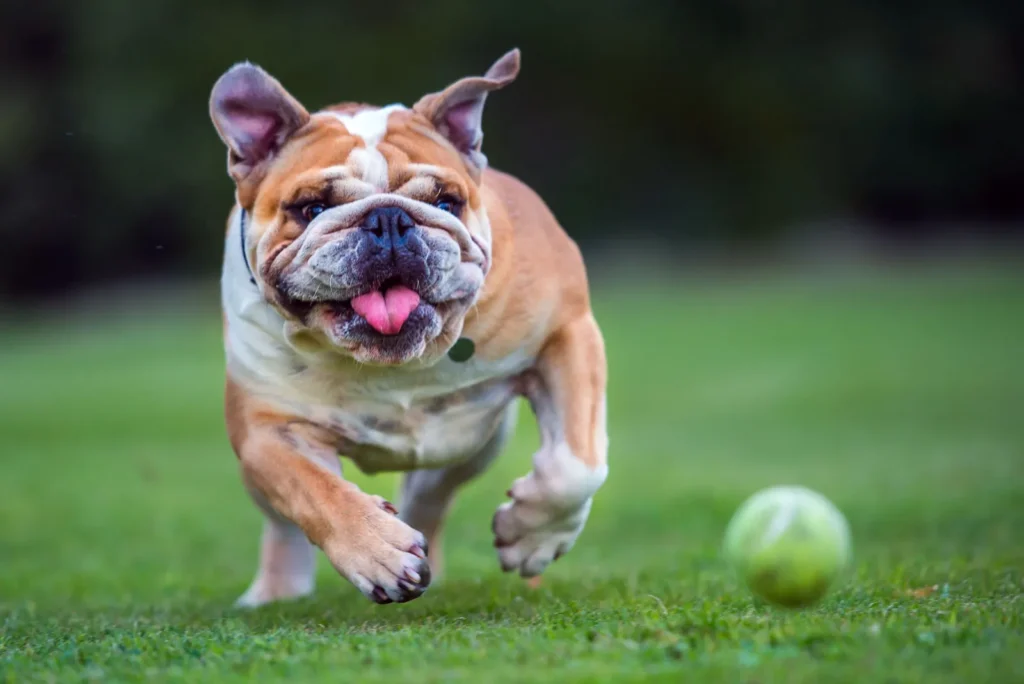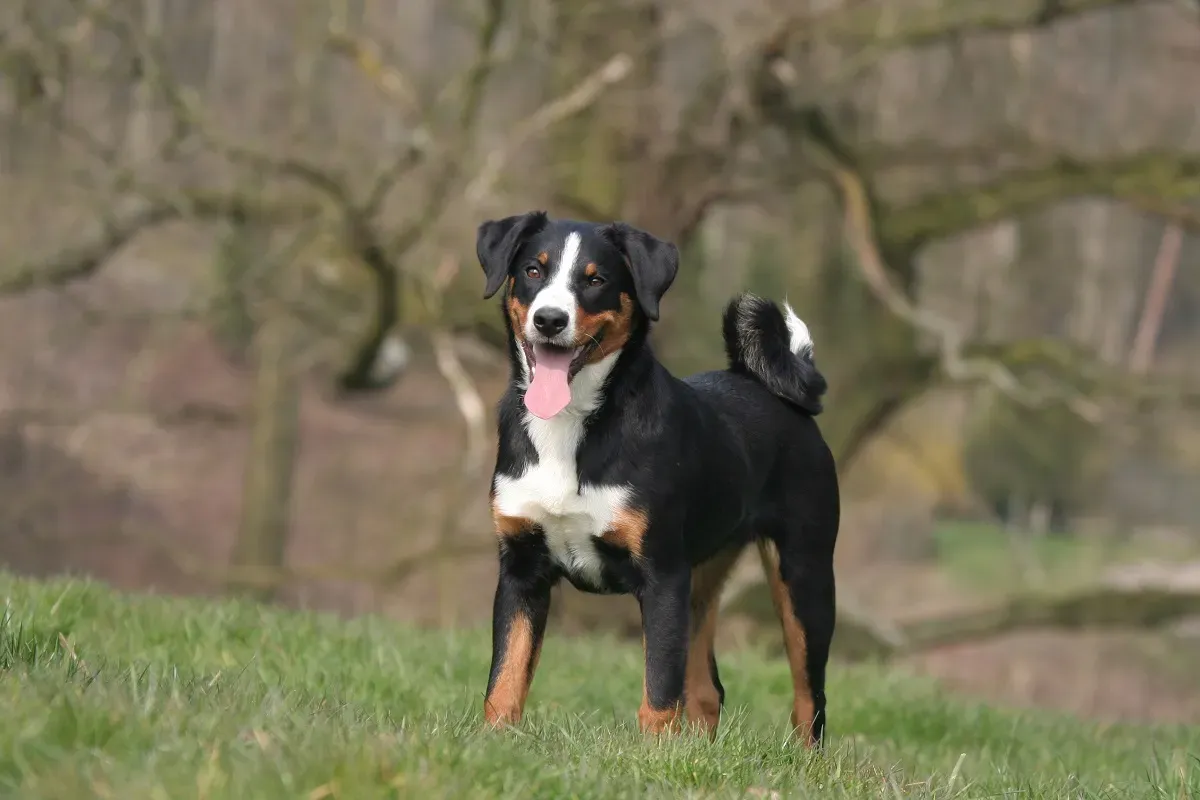
Bulldog
Kchouhan
June 4, 2025

The Bulldog, often affectionately known as the English Bulldog, is a symbol of resilience and loyalty. With its wrinkled face, muscular build, and lovable personality, this breed has captured the hearts of dog lovers in both the UK and the USA. Whether lounging on a sofa or charming visitors with its unique gait, the Bulldog is a calm, courageous companion perfect for family life.
Breed Overview
Bulldogs are medium-sized dogs, typically weighing between 40–55 pounds. They have a low-slung, muscular body, a distinctive pushed-in nose, loose skin on their head and shoulders, and a short tail. Their iconic appearance, once developed for bull-baiting in 13th-century England, has evolved into a look now synonymous with loyalty and stoicism.
Bulldogs are ideal for apartment living and don’t require a large yard, making them particularly popular in urban areas of the UK and USA.
Breed Colors & Markings
Bulldogs come in a variety of colors, including:
- Brindle
- Fawn
- White
- Red
- Piebald (white with patches of color)
Many Bulldogs have unique facial markings, with a “mask” around the eyes or symmetrical patterns that enhance their expressive faces.
Communication and Behavior
Bulldogs are not big barkers. They communicate through body language, grunting, and facial expressions. They’re known for their loyalty, often forming strong bonds with one person or family. Despite their grumpy appearance, Bulldogs are gentle, especially with children.
They do have a stubborn streak, but their calm, even-tempered nature makes them manageable with patient, consistent training.
What Do Bulldogs Eat?
In the UK and USA, Bulldogs are generally fed a high-quality dry kibble, although some owners opt for wet food or raw diets under veterinary supervision. Key dietary needs include:
- Protein for muscle maintenance (chicken, lamb, salmon)
- Moderate fat content
- Omega-3 fatty acids for skin and coat
- Joint-supporting nutrients like glucosamine
Bulldogs are prone to obesity, so it’s vital to monitor calorie intake and avoid table scraps.
What to Expect When Caring for a Bulldog
Health
Bulldogs are a brachycephalic breed, meaning their short snouts can lead to breathing issues. Common health concerns include:
- Brachycephalic Obstructive Airway Syndrome (BOAS)
- Hip dysplasia
- Skin fold infections
- Cherry eye
- Overheating
Regular vet visits, a healthy diet, and avoiding excessive exercise in hot weather are essential for managing these risks. In both the UK and USA, reputable breeders often screen for health problems, but adopters should always ask about genetic conditions.
Grooming
Bulldogs have short, smooth coats that are easy to maintain. However, their skin folds require special attention. Clean them at least 2–3 times a week with a soft cloth and gentle antiseptic to prevent infections.
- Brushing: Once or twice a week
- Bathing: Every month or as needed
- Nail trimming: Every 2–3 weeks
- Ear cleaning: Weekly
Regular grooming also gives you a chance to check for any signs of infection, especially in their folds and tail pocket.
Exercise
Bulldogs need moderate exercise — about 20–40 minutes a day. Walks should be short and cool-weather friendly. They’re not built for running or strenuous activity, but daily movement helps prevent obesity and joint problems.
Avoid:
- Hot weather walks
- Overexertion
- Swimming (many Bulldogs can’t swim well)
Indoor play, light tug games, or slow-paced walks in shady parks are best.
Training
Training a Bulldog takes patience and consistency. They’re not the most eager-to-please breed, but with treats and praise, they respond well. Focus on:
- Basic commands like sit, stay, come
- Socialization from puppyhood
- Leash training to manage their stubborn tugging
Use positive reinforcement and avoid harsh discipline — Bulldogs are sensitive despite their tough looks.
Nutrition
Bulldogs benefit from a balanced, portion-controlled diet. In both the UK and USA, many owners feed premium brands like Royal Canin Bulldog Formula or Hill’s Science Diet Sensitive Skin & Stomach. Some Bulldogs may have food allergies, especially to wheat, corn, or artificial ingredients.
Supplements like fish oil (for skin health) and probiotics (for digestion) are also helpful.
Final Thoughts
The Bulldog may look tough, but underneath its wrinkly exterior is a loving, gentle, and often goofy companion. Ideal for both city and suburban homes in the UK and USA, Bulldogs are low-maintenance in terms of exercise but require care in grooming, health monitoring, and diet.
They’re the perfect match for families or individuals seeking a calm dog with a loyal heart and a unique charm. With the right care and environment, a Bulldog offers years of affectionate companionship and steadfast loyalty.
Dog feed
Nutritious and tasty meals for your loyal companion’s health and energy.

